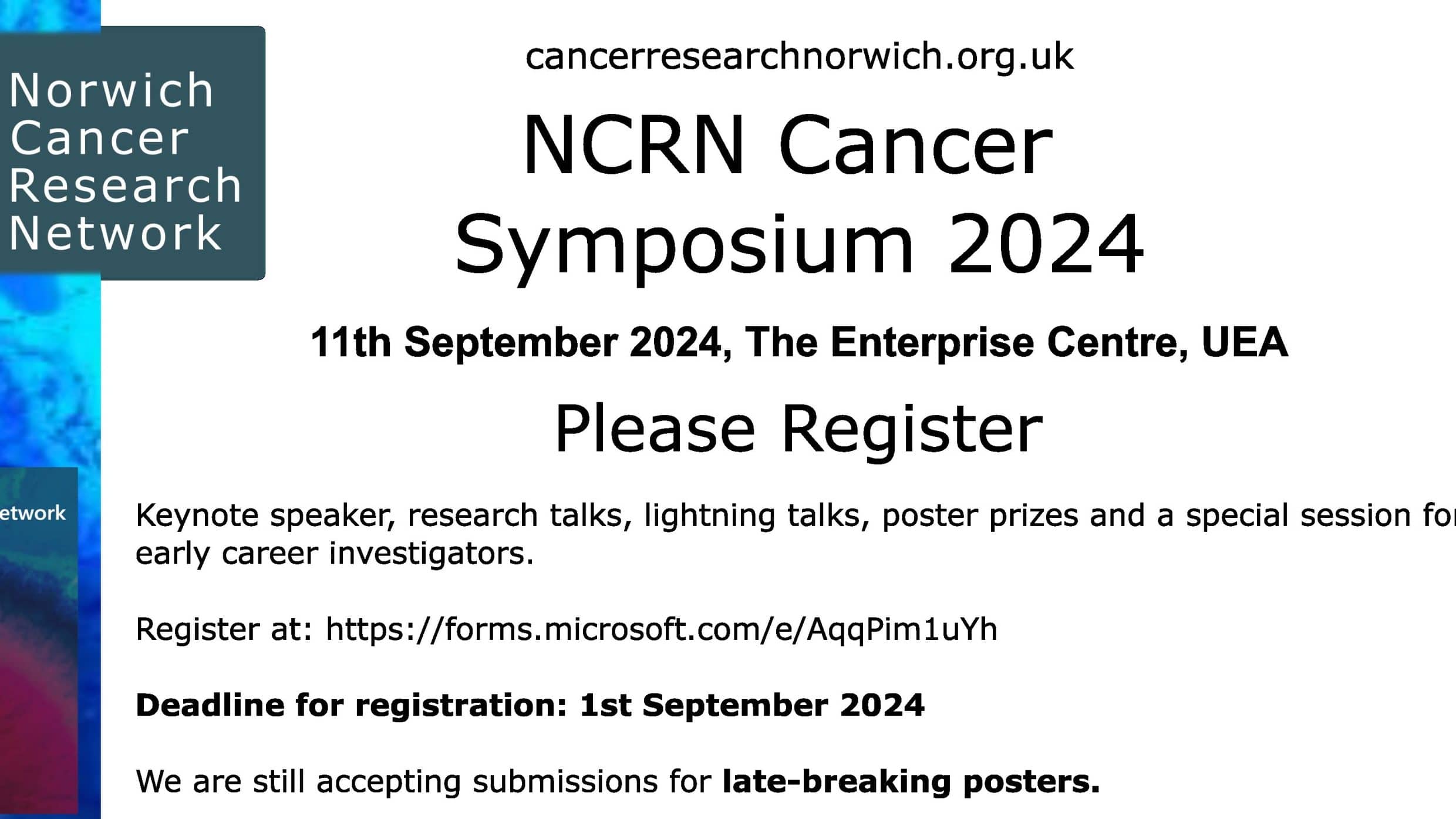Norwich Cancer Research Network Virtual Seminar
Title: Single-cell multiomics profiling in the study of colorectal cancer evolution
Speaker: Silvia Ogbeide, Earlham Institute
Date: 18th March 2024 1pm
Meeting link: https://bit.ly/NCRNsem or MS teams link
Colorectal cancer (CRC) is the third most commonly diagnosed cancer type and the second leading cause of cancer-related deaths worldwide. Managing advanced cases, particularly metastatic CRC (mCRC), is a significant challenge due to the high failure rate associated with existing treatments. This issue is particularly evident with targeted therapies, where drug resistance significantly compromises efficacy. Therefore, developing new treatments capable of overcoming or preventing this resistance is crucial for improving patients’ prognoses.
The present study aimed to investigate the characteristics of mCRC patient-derived organoids (PDOs) in response to two Akt inhibitors: MK-2206 and AZD5363. The focus was on characterising the PDOs after developing resistance to these inhibitors, aiming to uncover the resistance mechanisms at both transcriptional and genomic levels. To achieve this, single-cell genome and transcriptome sequencing (G&T-seq) was applied to the Parental control, MK1- and AZD1-resistant PDOs. This method enabled an extensive profiling of mCRC cells and provided insights into the relationship between genomic alterations and their effects on the transcriptome.
Through this integrated multiomics approach, the study identified genes involved in resistance to Akt inhibition (Akti), implicated in various processes such as energy metabolism, extracellular matrix remodelling, and regulation of immune responses in Akti-resistant PDOs. Additionally, a pre-existing subpopulation within the parental PDO, characterised by specific copy number alterations (CNAs) at chromosomes 2 and 5, was found to have expanded in both resistant PDOs, indicating their potential role in driving drug resistance.
By integrating genomic and transcriptomic datasets from the same cells, researchers can identify altered genes at the DNA level and show changes in gene expression that are important for driving malignant processes, thereby highlighting potential targets for developing new treatments.



